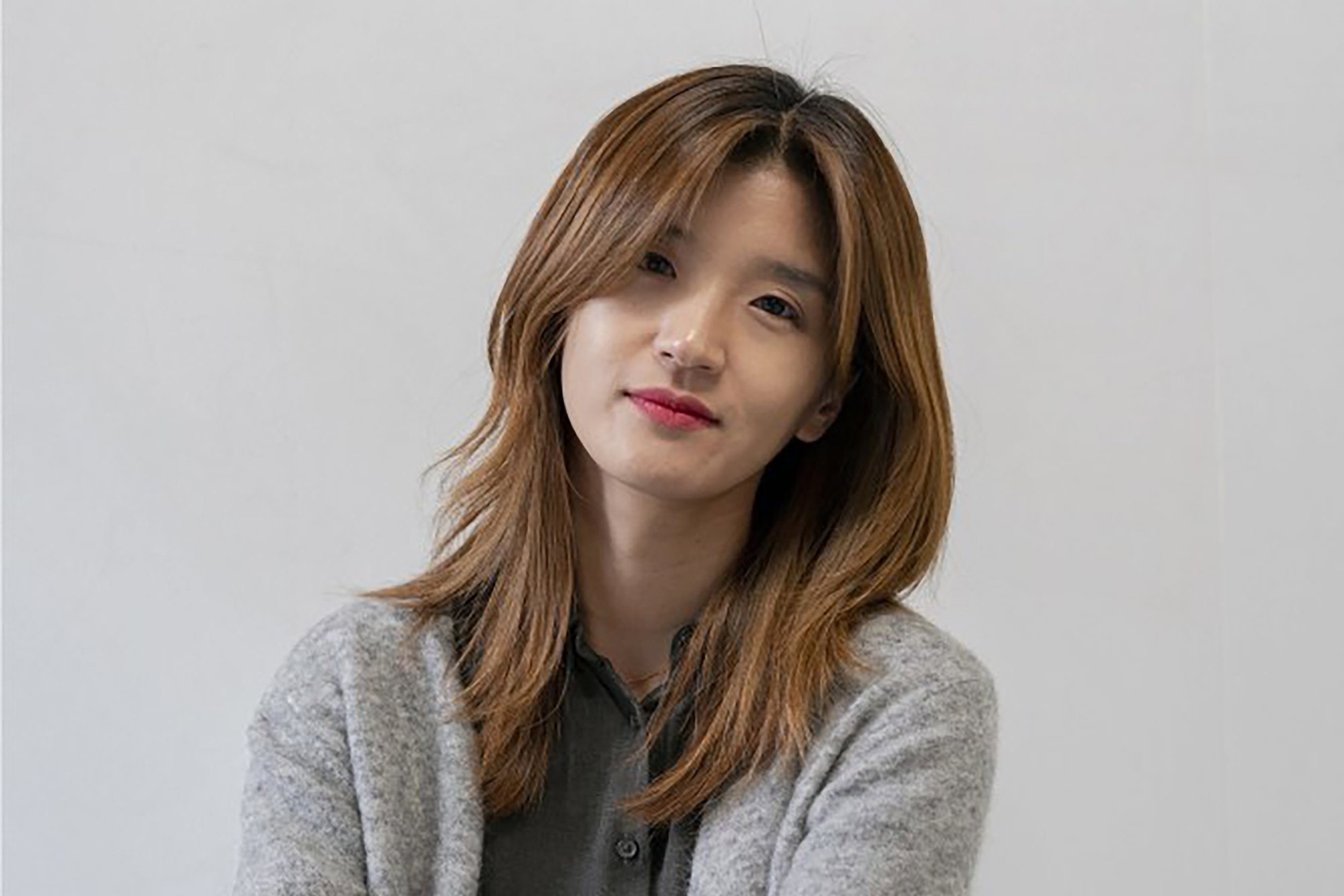Jinyoung Kim
Here
From September 6 to October 26, 2024
The gallery will open its doors for the opening on September 6 at 5 pm
— Facebook event
Tracing the career of Jinyoung Kim, a Korean-born artist who has been active on the Montreal scene for over ten years, the exhibition brings together several bodies of photographic, video and sculptural work. Here proposes a conceptual reading of the artist's work, placing her at the center of a narrative, not as a storyteller but as an active witness to a changing environment. Here is the place of belonging, or perhaps more profoundly, the place where the feeling of belonging develops. Sometimes fluctuating, changing, temporary, subject to displacement, or altered by the desire of individuals to anchor themselves, this place is shaped as much by the people who inhabit it as by its physical construction, or the objects to which we become attached and those we leave behind. Here is the house that can be seen from the outside to explore its interiority. Here is living, by necessity, within the growing precarity of our social, political and economic contexts.
— F.C.
Apparitions (2024)
Appearing as both the image’s negative and its materialization, both absent and concrete, fragile yet lasting, this work is made from discarded furniture that the artist collected, either casually from the sidewalk or donations made by individuals moving out of Montreal in 2021. Preserving the imperfections of these abandoned pieces, the sculpture evokes the ambivalence between precarity and rootedness.
Production assistant: Geneviève Dagenais.
Fireworks on the shore, walking with our feet in ocean (2024)
The image features, in the foreground, the artist’s parents walking along a shoreline with fireworks barely emerging out of the darkness of a night-time city skyline. Interested in the moment’s poetic potential, the idea that one could be a visitor at home, Jinyoung Kim took the photo on a summer seaside trip, which also marked the first time her immediate family was all together in South Korea since immigrating to Canada.
Here (2024)
“Here” is a changeable place to which we arrive only when it is felt to be so. Presented as a constellation, this mural of photographs showcases images taken by Jinyoung Kim over the span of ten years. They capture ordinary moments in the different places where she has resided, exploring the paradox of “here” for someone who comes from elsewhere. Focusing on the distances, movements, and environments that envelope people, the work is also a portrait of a family whose sense of place feels adaptive and shifting.
Jugong Apartment (2017)
Jugong Apartment (2019)
Commemorating the demolition of Jugong Apartment Complex 1, in Gwacheon, South Korea, these photographs were taken two years after the artist initially documented the neighborhood in transition, while its residents were being displaced. Compared to the first series of photographs, the new urban developments are captured from afar, taking into account the full scale of such projects.
Financial support from Canada Council for the Arts.
Last night (2019)
This site-specific installation commemorates the night many residents left their homes in a now-demolished neighborhood in Gwacheon, South Korea. The erasure of this neighborhood, replaced with new developments, marks the disappearance of an important piece in the artist’s personal timeline, gone with it the physical traces of formative memories. By collecting the objects, and bringing them together with a string of lights, Jinyoung Kim speaks to the sentimental and social values of the disappearing place.
Financial support from Canada Council for the Arts.
Objects on the Rooftop (2015)
For this series of photographs, on the rooftop of her paternal grandparents’ home in South Korea, Jinyoung Kim assembles a collection of objects pulled from storage in the house’s basement. Placing each object in relation to another, eventually accumulating into piles or improvised sculptures, she reflects on her grandparents’ return to South Korea from Manchuria where they were exiled, and how she carries a part of their story with her in her own migration to Canada.
Financial support from the Roloff Beny Foundation Photographic Award in Fine Arts.
Objects on the Sidewalk (Montréal) (2024)
Documenting discarded household items on the sidewalks of Montreal, this series of photographs captures transitional moments, embodied by briefly erected monuments appearing just before garbage collection. In these objects, the artist sees a change in someone’s living situation to which she is familiar. While the objects cannot tell the whole story, they communicate a sense of loss or melancholia, liminality, and the accelerated pace of change in urban settings.
Production assistant: Roxanne Ross.
낭송자 Recitation (2023)
Against the backdrop of modern housing estates on the outskirts of Berlin, two East Asian women elusively recount memories of migration, imparting notions of home. The film opens with a narrator guiding the viewer through a maze-like visualization of place and memory, asking whether it is possible to “see” one's past when in a foreign environment. The women meander and search through the intricate architectural layout of apartments and parks, revealing an intricate and intersecting sense of familiarity and foreignness.
Kim chose the film’s Berlin site due to her curiosity about the historical facts and speculations tying South Korea to Germany; namely, that in the aftermath of the Korean War and Japanese influence, South Korea’s then-president Park Chung Hee looked to Germany to learn from its so-called miraculous industrial processes, including its housing. As a legacy of post-war modern housing developments from the West, large apartment complexes emerged in South Korea.
Production assistant: Saebom Kim, Sion Huh
Cinematography: Kevin Jung-hoo Park
Original music, sound design and mixing: Christian Olsen
Realized with the support of the Leonard & Bina Ellen Art Gallery as part of the competition Seeing and Not Knowing.
Trees on the Move (2019)
These photographs were taken shortly before the demolition of a Seoul neighborhood consisting of apartment complexes from the 1980s. They document the precarious transplantation of trees to temporary locations, whereby the trees are severed at the root and held up and bound by rope until they can be relocated again to a permanent place.
Jinyoung Kim (b.1984) is a Korean-born, Montreal-based artist whose practice explores a sense of place and the material culture where personal and collective memories coalesce. Expanding on an imaginary realm bridging the past and the present, she utilizes photography, video, and object-based installations to create an inventory of lived experiences from the perspective of a diaspora.
Kim holds an MFA in Studio Arts from Concordia University. She has exhibited and screened her work across Canada and internationally and is represented by the Patrick Mikhail Gallery, in Montreal. In 2022, Leonard Bina and Ellen Art Gallery awarded her film 낭송자 Recitation the Seeing and Not Knowing short film production bursary. She received the Prix Lynne-Cohen in 2019 and was shortlisted for the Prix Pierre-Ayot in 2018. Her works can be found in numerous public collections in public and private institutions, including the permanent collection of Musée national des beaux-arts du Québec, Musée d’art contemporain de Montréal, Ville de Montréal, Hydro-Québec, and Desjardins.
Outreach
Meet the artist
On September 21, 2024 from 2 pm to 4 pm
Come see the exhibition and chat with Jinyoung Kim!
Outreach
Meet the artist
Jinyoung Kim discusses her exhibition Here,
Other exhibition
Basma al-Sharif
I want all this material burned
From September 6 to October 26, 2024
An exhibition prepared for Dazibao by France Choinière, in close collaboration with the artist. Dazibao thanks the artist for her generous collaboration as well as its advisory committee for their support.
Dazibao receives financial support from the Conseil des arts et des lettres du Québec, the Canada Council for the Arts, the Conseil des arts de Montréal, the ministère de la Culture et des Communications and the Ville de Montréal.
Dazibao acknowledges that it is located on the unceded territory of the Kanien'kehá: ka Nation and that Tiohtiá:ke / Montreal is historically known as a gathering place for many First Nations, and today, is home to a diverse population of Indigenous as well as other peoples. Guided by ethics of respect, listening, and awareness, Dazibao commits to a continued reflection regarding the deep-rooted and systemic challenges tied to accessibility and inclusivity in the arts and beyond, and endeavors to apply such reflections to all aspects of its activities and governance.





















